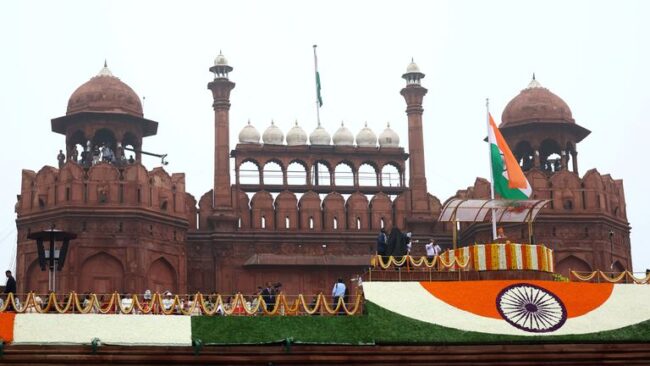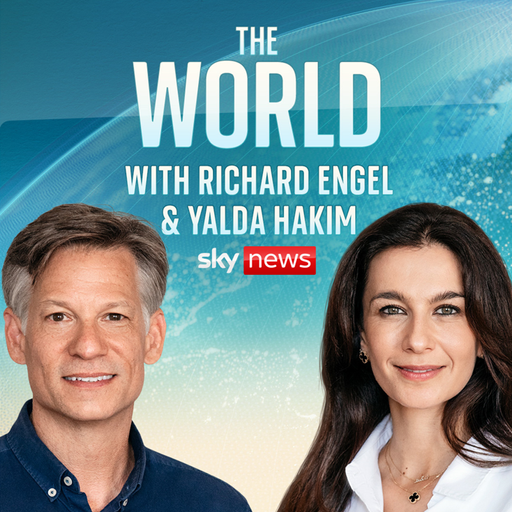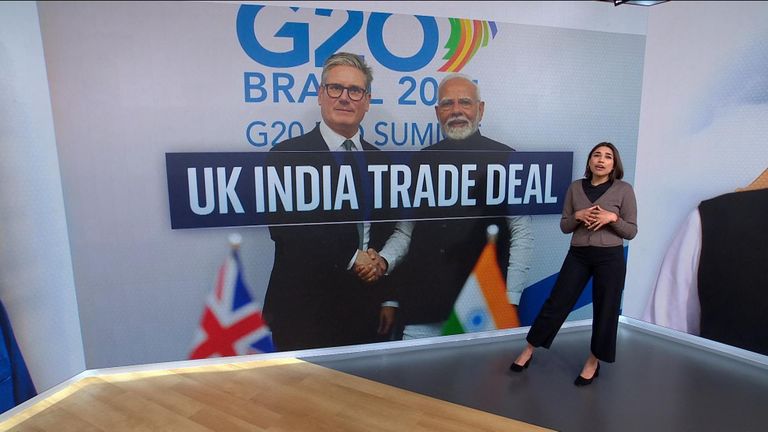India’s Prime Minister has warned Pakistan it will not succumb to, or tolerate, nuclear blackmail.
In Narendra Modi’s 12th consecutive speech from the ramparts of Delhi’s iconic Red Fort, he addressed the nation celebrating its 79th Independence Day from colonial Britain.
He laid emphasis on ‘Atmanirbhar’, or self-reliance, in defending India by increasing and developing a more powerful weapons system for security.
Mr Modi said: “India has decided, we will not tolerate nuclear blackmail. We have established a new normal. Now we will not distinguish between terrorists and those who nurture and support terrorists. Both are enemies of humanity”
This comes on the back of the conflict in May after the killing of 26 people by terrorists in Pahalgam, Kashmir. In retaliation, India launched attacks on terrorist infrastructure across the border.
Pakistan retaliated, which quickly escalated into both countries launching a series of missiles, armed drones and heavy gunfire on each other.
After four days of fighting, a ceasefire was agreed to between the two nuclear-armed neighbours that have fought wars and many skirmishes over decades.
US President Donald Trump intervened saying: “I know the leaders of Pakistan and India. I know [them] very well. And they’re in the midst of a trade deal, and yet they’re talking about nuclear weapons… this is crazy.
“I’m not doing a trade deal with you if you’re going to have war, and that’s a war that spreads to other countries, you’ll get nuclear dust. When they start using nuclear weapons, that stuff blows all over the place and really bad things happen.”
Pakistan Prime Minister Shehbaz Sharif immediately thanked the American president for the ceasefire and bringing about peace and stability in the region, also recommending him for the Nobel Peace Prize as a genuine peacemaker and his commitment to conflict resolution.
Mr Modi’s government is yet to acknowledge President Trump’s intervention and maintains that the Pakistani military initiated the ceasefire process and India agreed to halt military action.
In parliament, India’s Foreign Minister Subrahmanyam Jaishankar said: “There was no leader… nobody in the world that asked India to stop its operations. This is something the prime minister also said. There was no linkage of trade in any of these conversations and there was no talk between the prime minister and President Trump.”
Mr Modi’s speech is an audit of the year gone by and his future plans of strengthening the economy and of self-reliance in the face of very high tariffs imposed by President Trump for buying discounted Russian oil.
He spoke of bringing in structural reforms, welfare schemes for farmers, women’s empowerment, employment, technology, clean energy and the green industry, but also raised concerns about rising obesity levels.
India has the fourth largest economy in the world and is expected to be the third largest before Mr Modi’s current term ends in 2029.
Although when it comes to GDP per capita income, which serves as an indicator of individual prosperity, India is ranked 144 out of 196 countries.
The big economy illusion of GDP size has little to do with the well-being and fortune of its people, something the government refuses to acknowledge.
Read more from Sky News:
Deadly flooding hits Kashmir village
UK-India free trade deal examined
Modi sworn in as PM for third time
In its 2024 report, Paris-based World Inequality Lab said the inequality in India now is worse than under British rule. The research stated that 1% of the wealthiest Indians hold 40% of its wealth and enjoy a quarter of the nation’s income.
Comparing the ‘British Raj’ to the ‘Billionaire Raj’, the study said there are now 271 billionaires in the country and 94 new ones were added the previous year. The rise of top-end inequality in India has been particularly pronounced in terms of wealth concentration in the Modi years between 2014-15 and 2022-23.
With over 1.46 billion people, India is the most populous country, making up 17.8% of the global population.
More than half the country is under 30, and it has one of the lowest old-age dependency ratios, enabling productivity, higher savings and investment.
A key challenge for the government is to match employment with its growing young population. It’s even more critical as artificial intelligence (AI) is increasingly used in production and services, eating into jobs.
Last week, President Trump levied an additional 25% tariff on India for buying Russian oil, taking the total tariff level to over 50% and hitting Indian manufacturing and trade.
“I don’t care what India does with Russia. They can take their dead economies down together,” the president said.
Since the Ukraine war, India has been buying discounted Russian crude and its imports have risen from 3% in 2021 to about 35% to 40% in 2024.
Defending its stance, India says it does so for its energy security and to protect millions of its citizens from rising costs.
It’s a national day of celebration with patriotic fervour all around, but also a grim reminder of the tragedy of partition – the trauma of which still haunts its people.











